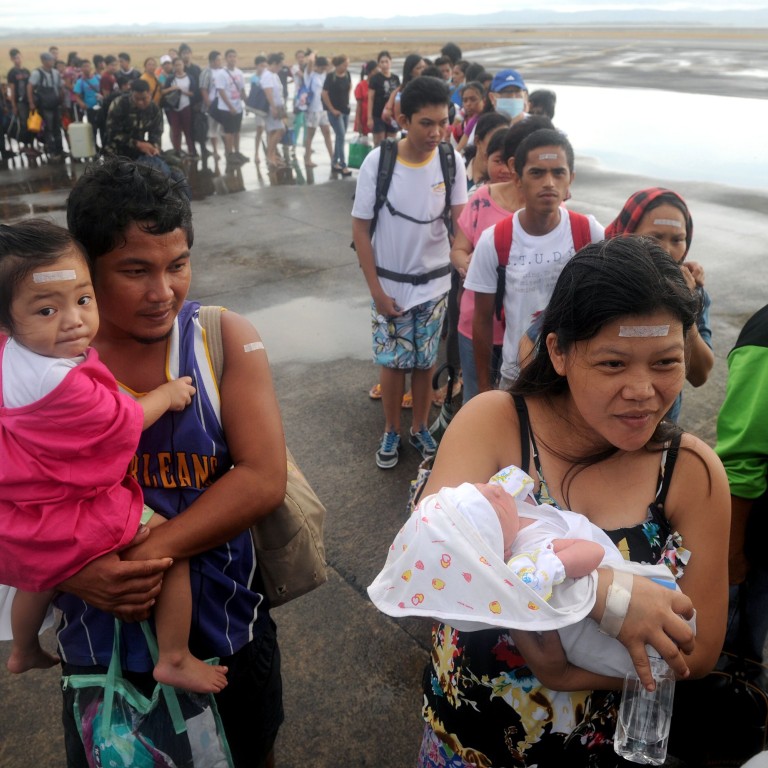
Psychologists rush to ease Philippine typhoon survivors' mental trauma
Dozens of psychologists heav begun helping dazed survivors of Super Typhoon Haiyan deal with the psychological fallout of one of the Philippines's worst ever disasters.
Dozens of psychologists heav begun helping dazed survivors of Super Typhoon Haiyan deal with the psychological fallout of one of the Philippines's worst ever disasters.
The operation is an early attempt by health professionals to head off what they fear could be serious problems down the road, even as the physical scars from the tragedy begin to heal.
We are worried that in the next few days there will be anarchy
There have been sporadic incidents of riots and looting, and experts warn these could spiral if the root causes - loss and helplessness - are not addressed.
"We are worried that in the next few days there will be anarchy," said Annabelle de Veyra, chief administrator of the health department for the region.
"It's not just food that they are getting. It's more of a psychological reaction," she said.
"People from Tacloban are not like that. They need psychological counselling," she added.
A 55-member team of psychologists from the health department arrived in Tacloban on Tuesday to help some of the city's 220,000 inhabitants deal with the disaster.
Stories of almost unimaginable tragedy abound in Tacloban, a place where parents have been forced to abandon the bodies of their children as they struggle to hold on to their own shattered lives.
Nedy Tayag, a clinical psychologist for the health department, said behaviour being exhibited by the typhoon survivors was typical among those confronted by massive disasters or destructive conflict.
"Their reaction is normal in light of the abnormal situation," the doctor said.
Tayag, who worked with survivors of the 2004 Indian Ocean tsunami as well as victims of other earthquakes and conflicts in the region, said Haiyan was by far the worst disaster she had been involved with, and it was imperative that issues be addressed early.
"It could lead to mental breakdown, emotional imbalance, confusion and depression," she said.
The focus of the health department experts would be "psychological intervention" that could involve therapy and counselling sessions of both individuals and groups.
De Veyra, the regional health official, said many of the survivors would need stress debriefing to combat their psychological reaction to the sight of water.
